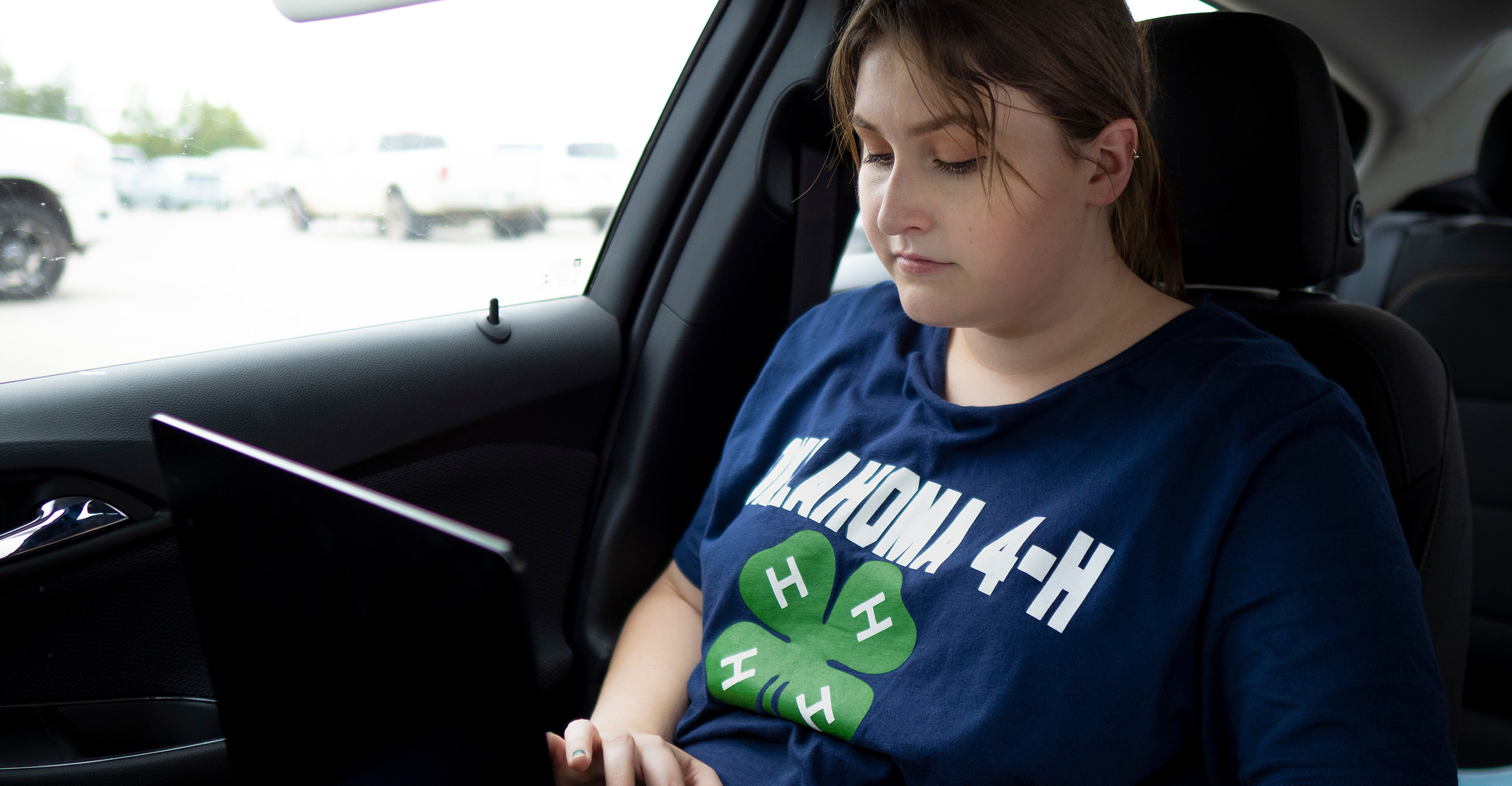
Oklahoma 4-H’er helping close the digital divide
Monday, October 11, 2021
Media Contact: Trisha Gedon | Communications Specialist | 405-744-3625 | trisha.gedon@okstate.edu
While many school children attended virtual classes from the comfort of their home during the pandemic, Murphy Peterson, now a high school senior, had to pack up her computer and drive into town with her mother to a local fast-food restaurant to access a reliable internet connection.
“It was hard to make the jump from learning at school to learning at home during the pandemic,” Peterson said. “Having good, reliable internet access is so important for everyone, especially those in rural areas. We feel like we’re left behind.”
Peterson, a member of the Oklahoma 4-H Youth Development program in Pittsburg County, wasn’t the only student who lacked access to a fast, reliable internet connection to complete school assignments.
A recent survey by the National 4-H Council, the Harris Poll and the 4-H Tech Changemakers coalition shows that teens across the United States agree disparities in access to reliable, high-speed internet continue to foster economic and social inequities.
Among other findings in the survey, 73% of teens believe digital skills are the key to getting the best jobs; one in 10 American teens don’t have access to broadband internet, rising to a rate of one in six teens in rural communities; and broadband access has dropped by 7% at both homes and schools since 2019.
The survey polled more than 1,600 people ages 13-19 from suburban, urban and rural communities. 4-H Tech Changemakers is National 4-H Council’s initiative to help build a more equitable future for today’s youth. Peterson has been selected to serve as a 4-H Tech Changemaker and is prepared to teach critical digital skills in her community through a series of in-person and virtual workshops. Plans also include helping community members learn how to use specific applications on their computers and smart phones. An estimated 50,000 youth and adults across 18 states will be reached through this effort.
“It’s so important to get basic technology available to everyone. It’s vital to survive in this day and age,” Peterson said. “Equal access for everyone is critical, no matter where they live. Internet access plays a vital role in how we succeed in life. College and job applications are online, and people are being denied opportunities simply because of their lack of accessible technology.”
As a 4-H Tech Changemaker, Peterson said her main push is to highlight the communities in need of advanced technology.
“The pandemic really brought into focus the challenges rural communities face. For example, my sister owns a business, but isn’t able to process orders or maintain the website from her home,” she said. “It’s hard to build a successful business without the needed technology. It’s vital in order to have a profitable business. Being a 4-H Tech Changemaker will allow me a chance to help communities like mine build a better future.”
Jennifer Sirangelo, president and chief executive of the National 4-H Council, said “The data is clear: Lack of access to reliable broadband and critical digital skills are some of the greatest barriers people face today in working toward educational and economic achievement. Expanding access to broadband internet and adoption of digital skills are concrete steps we can take now to drive more equitable access to opportunity across the county. Together with our Tech Chagemakers partners, we’re bringing critical digital skills to communities across the country, not only to create opportunities for individuals, but to build local economies as well.”
Peterson, a member of the Haileyville 4-H Club and Southeast District representative on the State 4-H Leadership Council, said not only will this help students with online school but will benefit local businesses.
“Whenever I go to a new place, I Google things to do there,” she said. “Businesses in my area will be able to create searchable websites that will help promote our community and bring in new revenue. This will help our small community grow. I have high hopes for this project and I’m excited to showcase how important this technology is to everyone, especially those in rural areas. I want to be a voice for people.”
